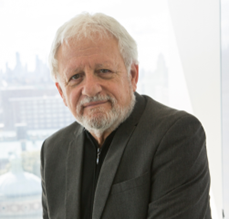SSIRCA Keynote Address
2025 SSIRCA Keynote Address
The Optimism of Scientific Uncertainty Featuring Dr. Stuart Firestein
It may seem odd to pair the words optimism and uncertainty, but Dr. Stuart Firestein will show how in science they are perfect partners. First, he will complicate the idea of optimism, throwing off its common usages as a psychological mood or happy disposition and considering it as a philosophical view – a way of coming at the world. It is in this meaning tied to progress and to a scientific view of the world. But what if science is more about uncertainty than certainty? Recently science has generated mistrust and suspicion among the public, at least partly for its expression of uncertainty when asked for answers to critical questions – climate, health, nutrition, etc., and so we must also complicate the idea of uncertainty, not as ignorance of the truth but as the most true description we have of the world. Uncertainty, rather than certainty, should be embraced as a field of possibilities. It is where the great discoveries are to be made and the novel if unexpected advances will occur. Certainty is a dead end. Uncertainty, in science, is a source of optimism.
 Dr. Stuart Firestein is the former Chair of Columbia University's Department of Biological Sciences where his laboratory studies the vertebrate olfactory system which serves as a model for investigating general principles and mechanisms of signaling and perception in the brain. His laboratory seeks to answer that fundamental human question: How do I smell?
Dr. Stuart Firestein is the former Chair of Columbia University's Department of Biological Sciences where his laboratory studies the vertebrate olfactory system which serves as a model for investigating general principles and mechanisms of signaling and perception in the brain. His laboratory seeks to answer that fundamental human question: How do I smell?
Dedicated to promoting the accessibility of science to a public audience Firestein serves as an advisor for the Alfred P. Sloan Foundation’s program for the Public Understanding of Science, where he reviews scripts for the Ensemble Studio Theatre/Sloan Science and Technology Program, and for the Tribeca Film Festival. In 2011 he received the Lenfest Distinguished Columbia Faculty Award for excellence in scholarship and teaching. He is a Fellow of the AAAS, an Alfred Sloan Fellow and a Guggenheim Fellow. He recently joined the Santa Fe Institute as a member of the (visiting) Fractal Faculty. At Columbia he is on the Advisory boards of the Center for Science and Society (CSS) and the Presidential Scholars in Society and Neuroscience – both centers for interdisciplinary work between the sciences and the humanities.
He has published two books on the workings of science for a general audience, Ignorance, How it Drives Science and Failure: Why Science is So Successful. They have been translated into 12 languages. He is a board member and regular contributor to Nautilus magazine.